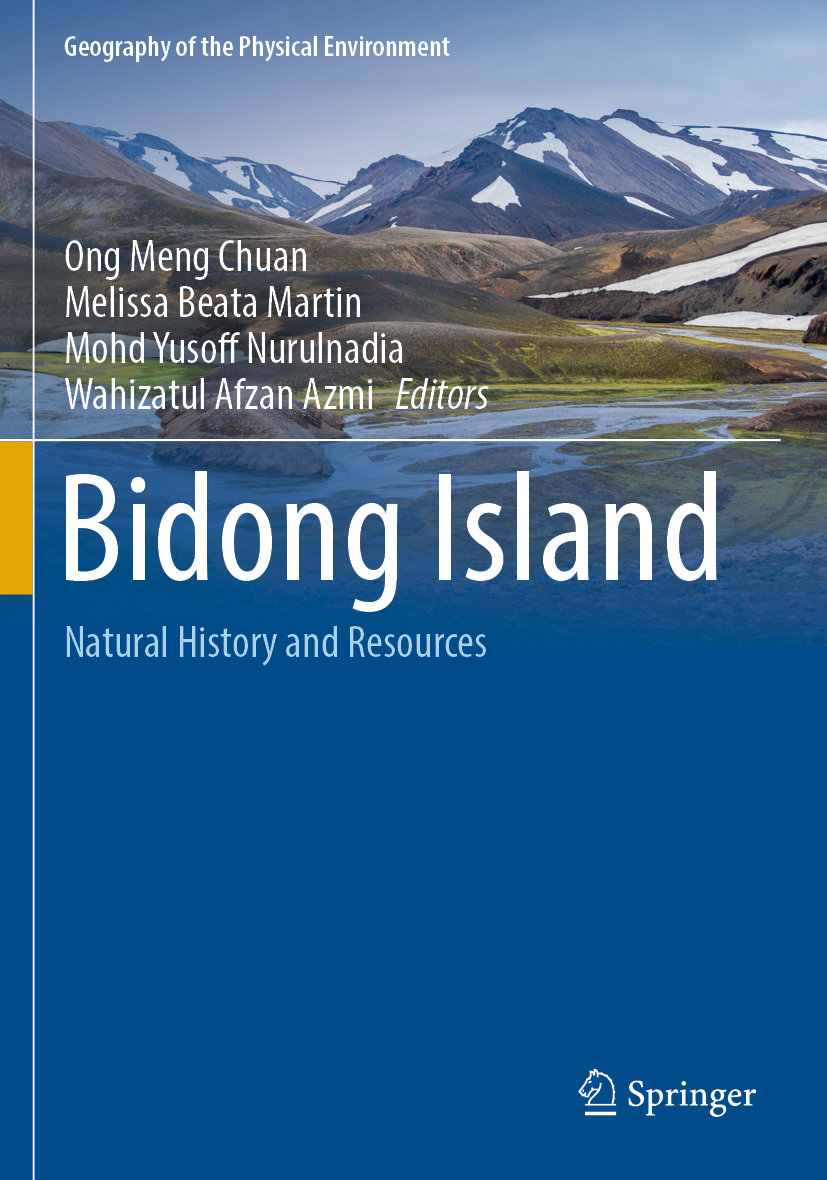Ong Meng Chuan is an Associate Professor in Marine Science at Faculty of Science and Marine Environment, Universiti Malaysia Terengganu. He holds a doctoral degree in Marine Pollution specifically in Metals Pollution from University of South Brittany, France. His research focus on the metallic elements content in sediment samples which can act as geo-marker for pollution studies. He also studied the sediment characteristic and the relationship between particle size and the metallic elements concentration. Apart from the sediment samples, his research also includes on biota samples of fishes, crustaceans, bivalves, mollusks and plants such as seaweed and sea grass. From this biota samples, the suitability of using these organisms as bio-indicator can be identified which best reflect the environmental quality. Risk assessment towards human health by consuming these organisms can be estimated. Until now, he had participated in numbers of international conference and local conference in Malaysia to present his findings. He also actively published his finding in local Malaysia and international journal. He had been published 60 journals and attended more than 20 conferences and reviewer for numbers of journals. Currently, together with the researchers in Ocean Pollution and Ecotoxicology (OPEC) Research Interest Group and other researchers from other universities and organization, the group are actively gather all data from Malaysian marine aquatic environment to be stored in GIS database. With this database, these data can easily bereferred by other researchers for their studies.
Melissa Beata Martin is a Senior Lecturer and Programme Coordinator of the Marine Biology Programme of the Faculty of Science and Marine Environment, Universiti Malaysia Terengganu (UMT). She received her Diploma in Fisheries and Bachelor of Science (Marine Biology) at Universiti Malaysia Terengganu and her PhD in Fisheries Science fromUniversity of Tasmania, Australia. Though specialising in taxonomy, phylogeny and systematics (with emphasis on parasitic isopods of the family Cymothoidae), she has expanded her interest in elucidating the diversity of crustaceans in Malaysian waters, parasites of aquatic organisms and symbiotic associates of marine organisms. Some of her current research is looking into co-invasive parasites of Peacock bass and native fish species in Terengganu waters, diversity of isopods, crustacean decapods and benthic crustaceans in Peninsular Malaysia, and even resolving the taxonomy of freshwater minnows in South Africa (one of her many collaborative initiatives). She has published in numerous peer-reviewed journals, which includes Zootaxa, Zookeys, Records of the Australian Museum, Crustaceana, Aquaculture, Thalassas and Data in Brief. She is also a recipient of the Tasmania Graduate Research Scholarship, Australian Museum Geddes Postgraduate Award and UMT´s Academic Service Award. Due to herfirst love of taxonomy, some of her many research networks includes Australia Museum, Sydney; Museum of Tropical Queensland; Tasmanian Museum & Art Gallery, Hobart and South African Institute of Aquatic Biodiversity. In addition to her research responsibilities, she teaches undergraduate courses, which includes biological classification of marine organisms, marine invertebrate biology, marine biology field sampling course, biological oceanography and marine ecology.
Mohd Yusoff Nurulnadia is a lecturer at the Faculty of Science and Marine Environment, Universiti Malaysia Terengganu. She received her PhD in Aquatic Toxicology from the Kagoshima University, Japan; MSc from the International Islamic University Malaysia; BSc from the Universiti Malaysia Terengganu, Malaysia. Her research discipline is in applied toxicology specifically on fish. Specialising in toxicology, she actively pursuing research that applying toxicity testing using fish embryos, juvenile fish and zooplankton to investigate the effects endocrine chemicals as well as metals element. Currently, she is trying to develop the toxicity information using climbing perch, Anabas testudineus as local test organism. In extension of toxicology based research, she also works on the investigation of oxidative stress in aquatic animals through co-researcher in related field. She is keen to study the endocrine disrupting chemicals (EDCs) while concerning for aquatic and marine life productivity in Malaysia. Her interest was made possible after she was awarded a research grant from Ministry of Higher Education, Malaysia. In order to support this passion, she is working close to researchers from Faculty of Fisheries, Kagoshima University via co-authorship of peer-reviewed journal such as Chemosphere, Bulletin of Environmental Contamination and Toxicology, and Environmental Monitoring and Assessment. She is a co-researcher for an international grant awarded by Japan government by this collaboration. Besides research, she teaches undergraduate student courses such as environmental toxicology, chemical oceanography, environmental sciences and method instrumentation in aquatic research.
Wahizatul Afzan binti Azmi research interests are mainly on the diversity and ecology of insects, pest and disease management and environmental biology. Her area of specialization is analyzing and quantifying of biodiversity and community structure of insects, evaluating aquatic insects as bio-indicator of water quality and also insects-plant interactions, especially on Coleopteran pests and stingless bees. Her current research involving the development of molecular, systematic and biology of new invasive coconut pest, Red Palm Weevil ( Rhynchophorus ferrugineus ) on coconut palms, and investigation on alternative control strategy of this pest weevil using proteomic profiling of digestive fluid and evaluation of nano-formulated of entomopathogenic fungi as bio-control agent. The key strategy in the research activities is to give a better understanding on the taxonomy, biology and ecology of the new pest weevil on coconut palms, as well as to investigate the potential of indigenous entomopathogenic fungi, which will be the first step to discovery the potential control strategy of the species. The outcomes from this research will provide information for the effective formulation to control this new coconut pest using both biological and chemical pest management, so that the necessary measure can be taken to prevent its further spread.


